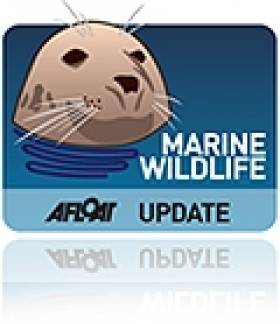Displaying items by tag: Minister Jimmy Deenihan
New Atlas Of Ireland's Offshore Marine Mammals Launched
#MarineWildlife - Minister for Arts, Heritage and the Gaeltacht Jimmy Deenihan was on board the Irish Whale and Dolphin Group's (IWDG) research vessel Celtic Mist yesterday 16 July to launch a new atlas of marine mammals in Ireland's coastal waters.
The Atlas of the Distribution and Relative Abundance of Marine Mammals in Irish Offshore Waters marks the culmination of six years of surveys involving more than 1,000 says at sea, and provides up to date information for 19 species of cetaceans: whales, dolphins and porpoises.
Ireland is home to a remarkable diversity of whales and dolphins, and the new atlas shows how common and widespread some of these species are - from the harbour porpoise and common dolphin to the much larger fin whale.
Not all Irish cetaceans are so common, however, and the atlas also highlights the importance of Irish waters for some of the Atlantic’s rarer deepwater species such as the sperm whale and several beaked whales.
These are species about which very little is known, the IWDG says more work will be required in the coming years to allow a better understanding of the conservation requirements of these animals.
Every six years, Ireland is obliged to report on the conservation status of all of its marine mammals as part of its commitments under the European Union’s Habitats Directive. The data from this atlas has already proved invaluable in underpinning Ireland’s 2013 report to the European Commission.
Speaking at the launch yesterday in Dun Laoghaire, Minister Deenihan commended the work undertaken to produce the atlas.
“This fine atlas is the culmination of many years of work by a large number of people and I’m happy to note that it was produced under a project funded over several years by my department in collaboration with the Marine Institute," he said.
"As minister, I have also extended the protection afforded to whales and dolphins through the designation of additional marine special areas of conservation. I would like to thank the Irish Whale and Dolphin Group for this excellent publication.”
The atlas is available as a PDF to download HERE.
























































